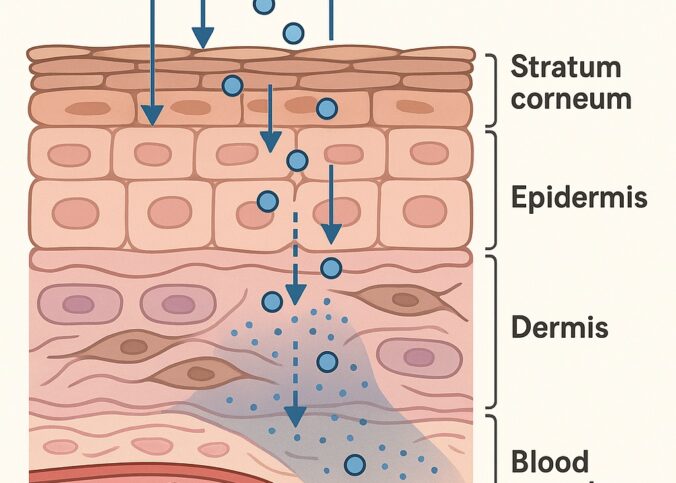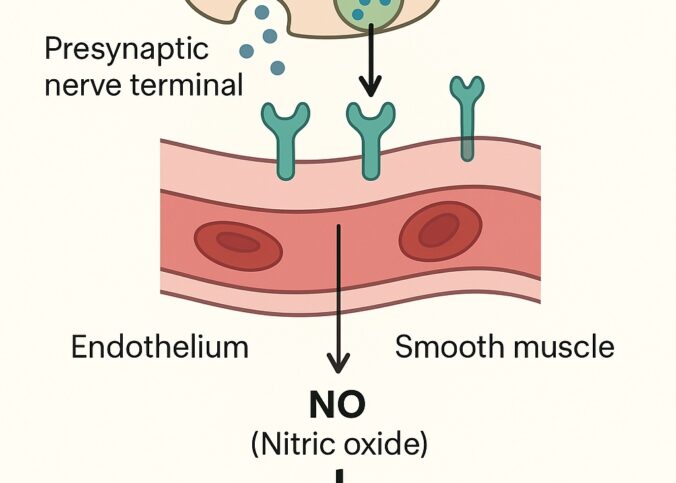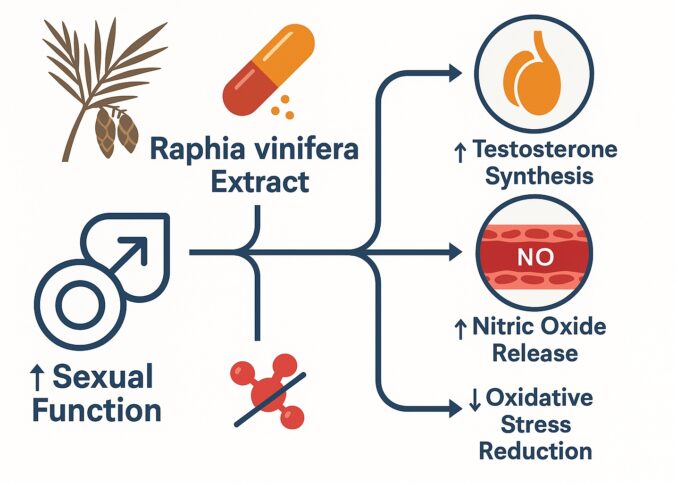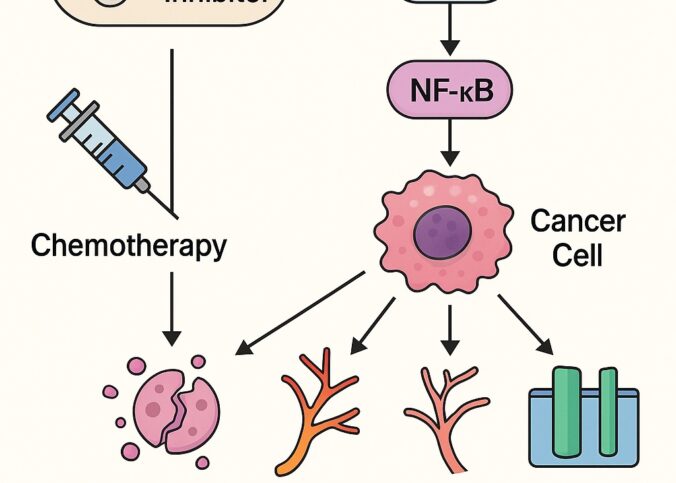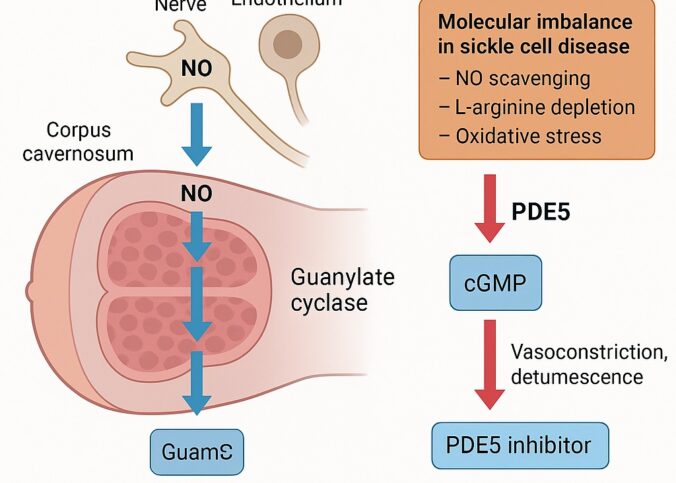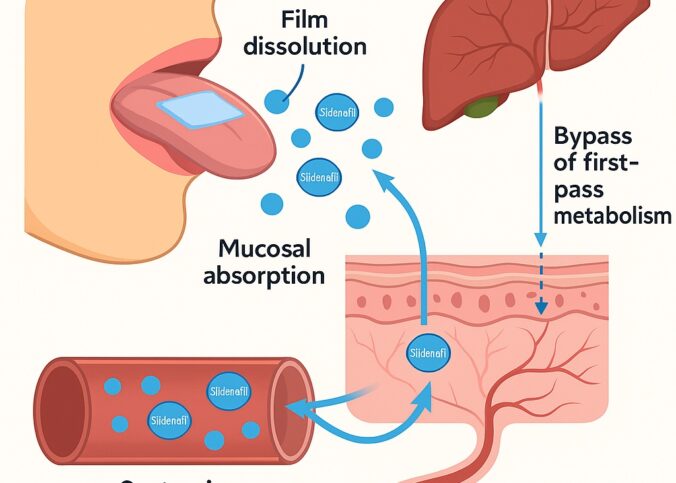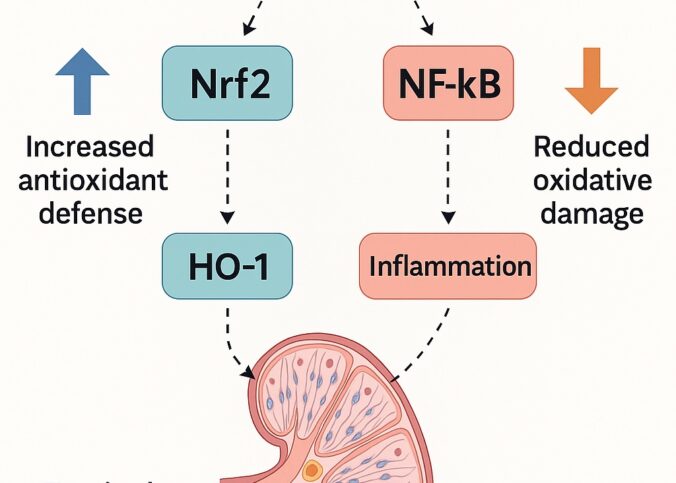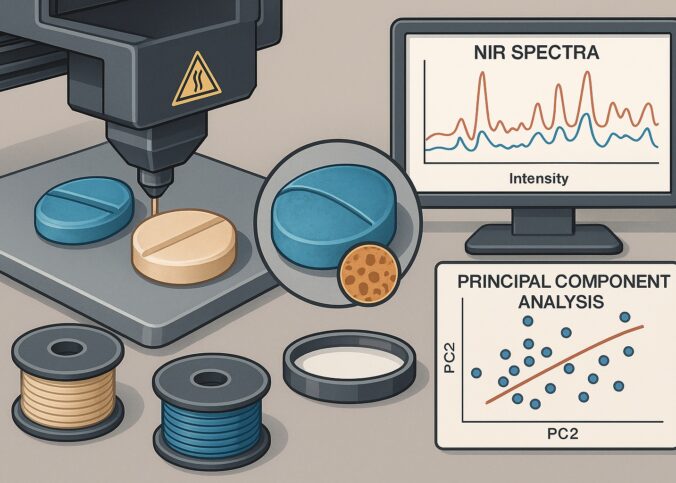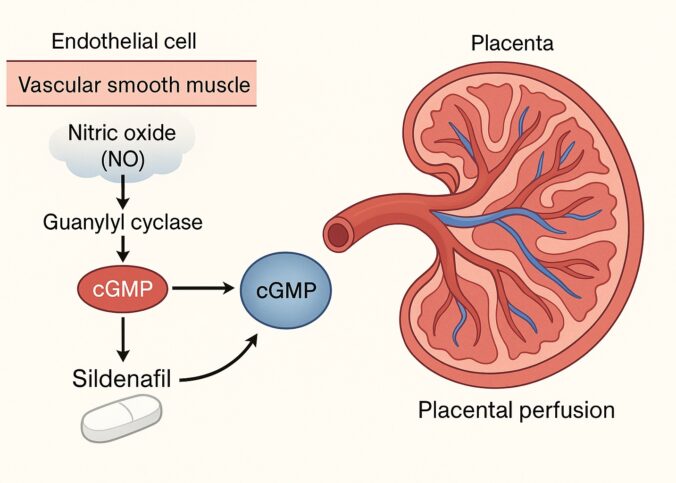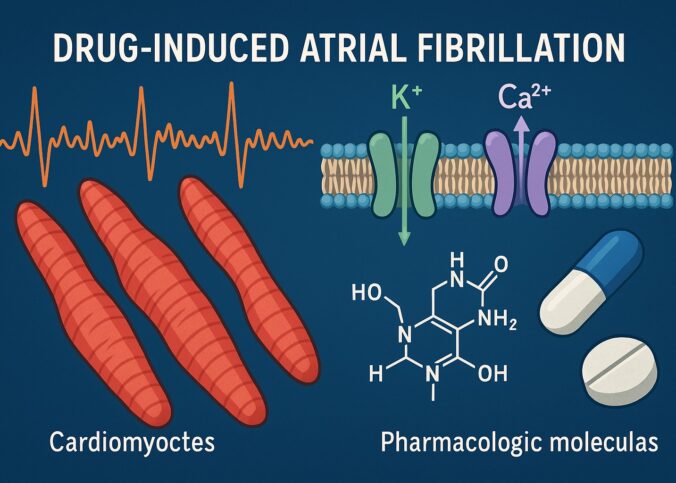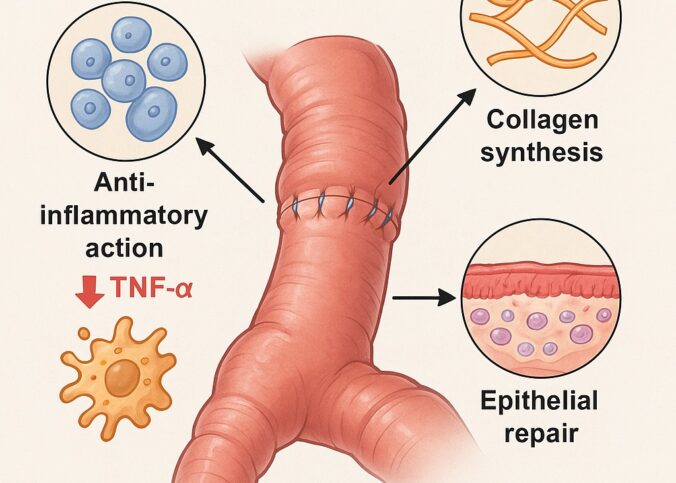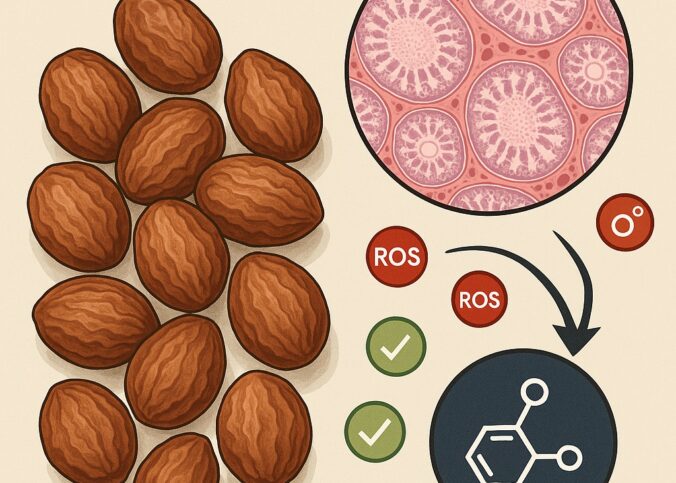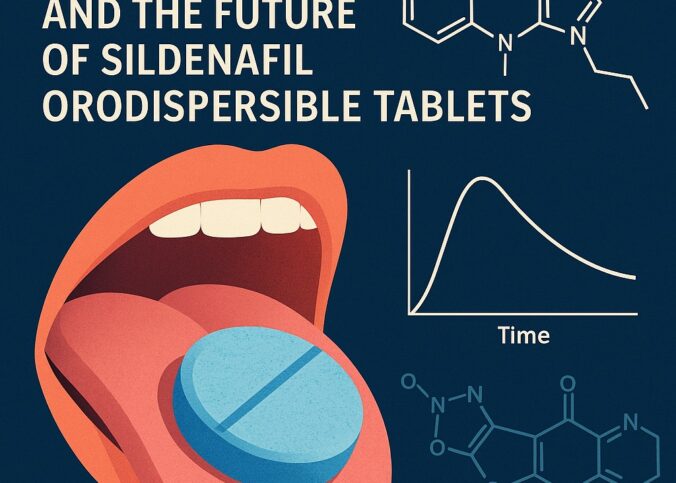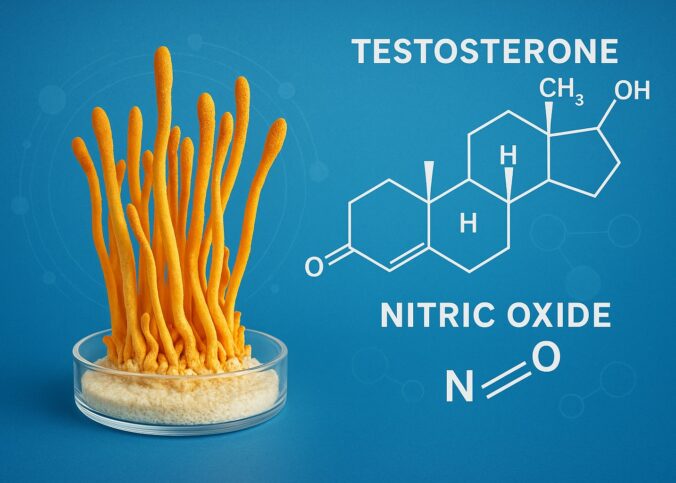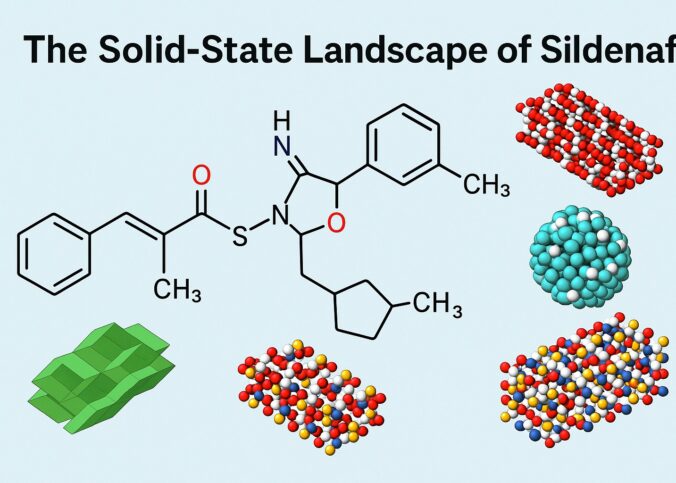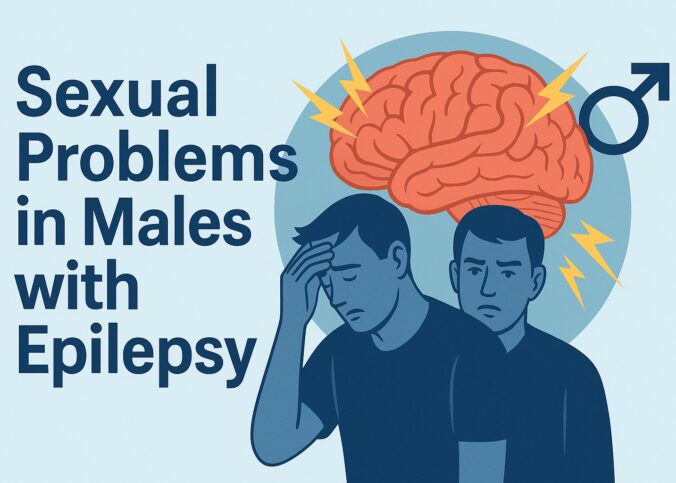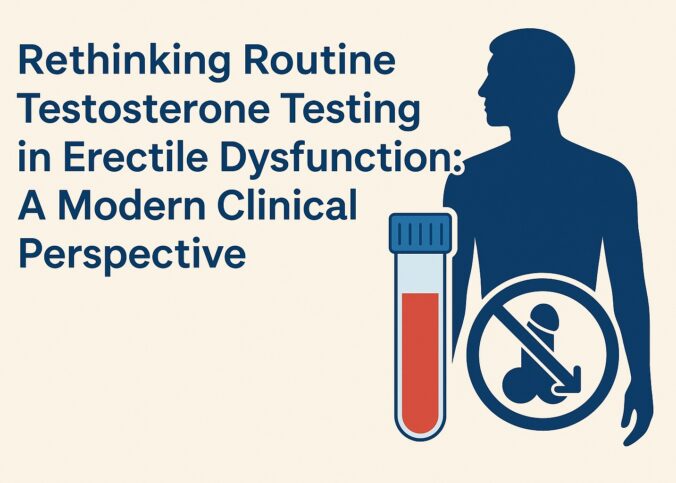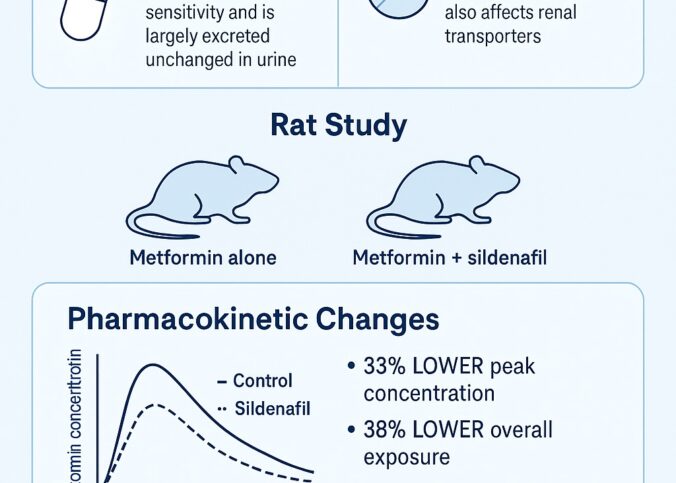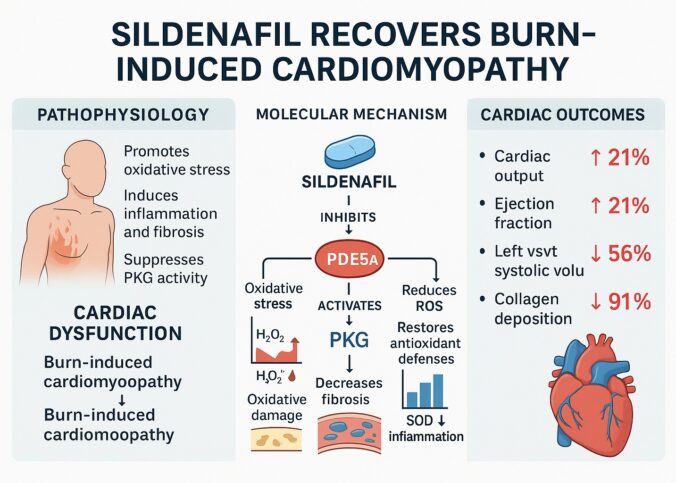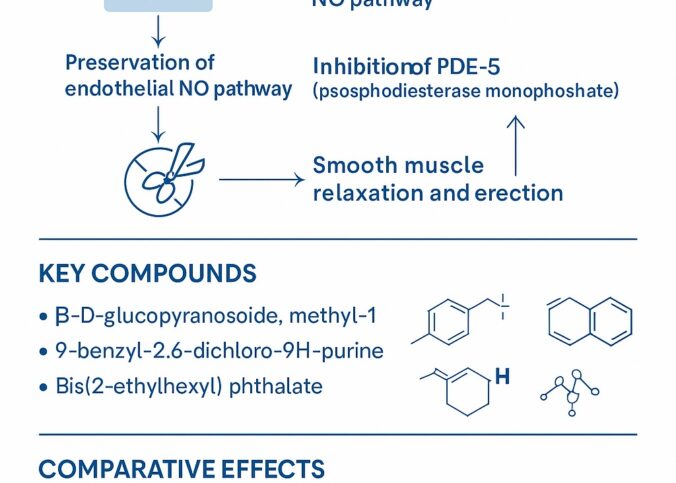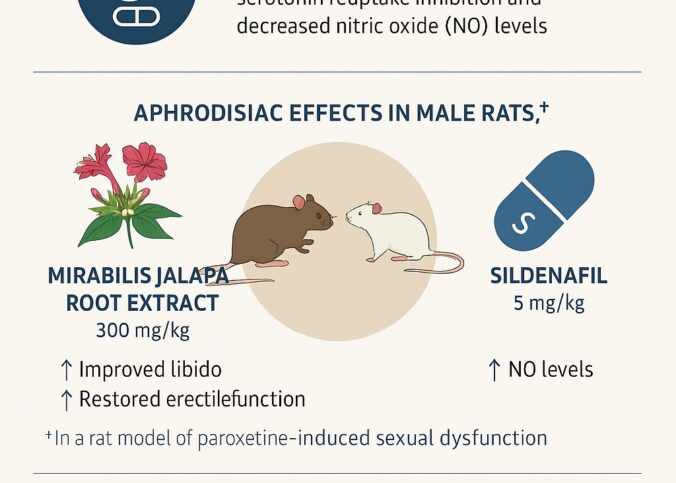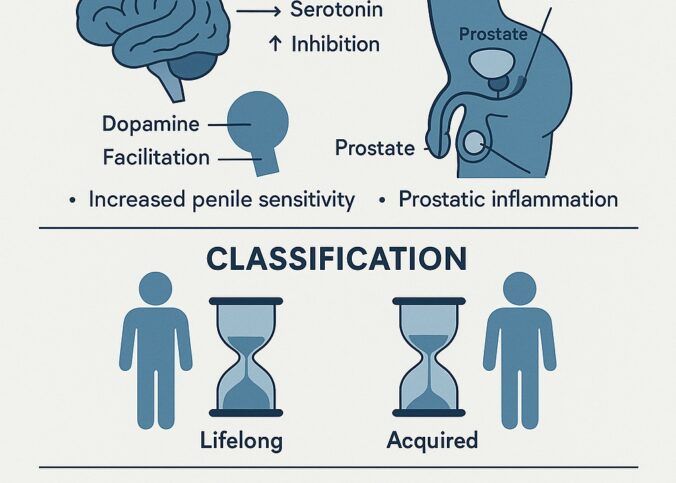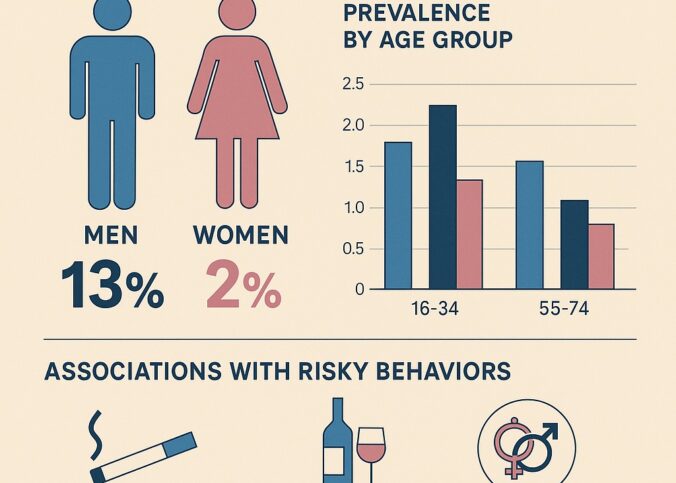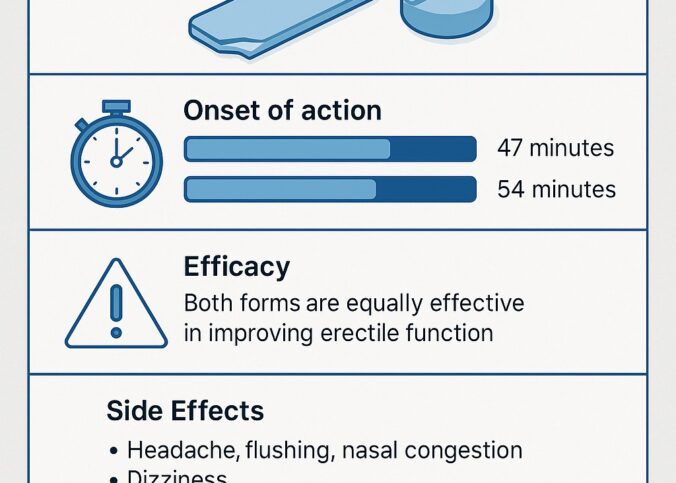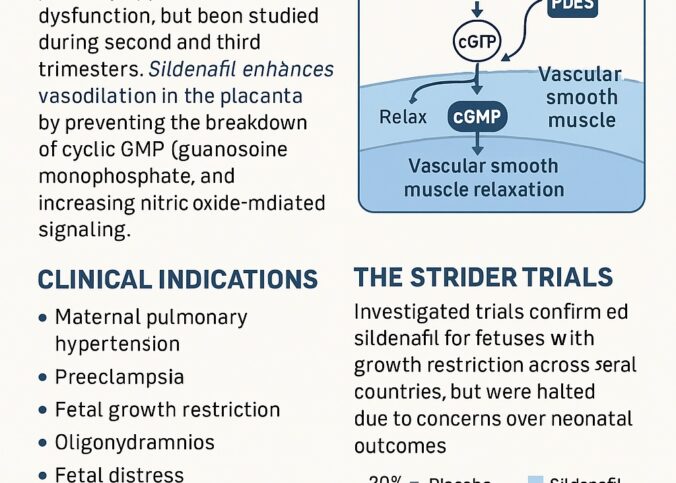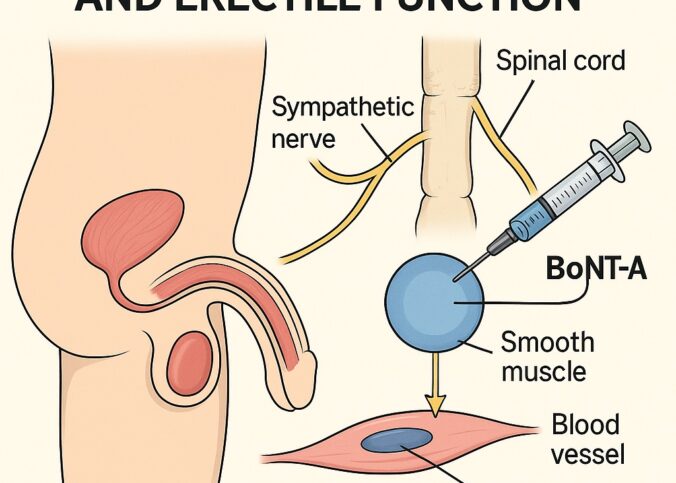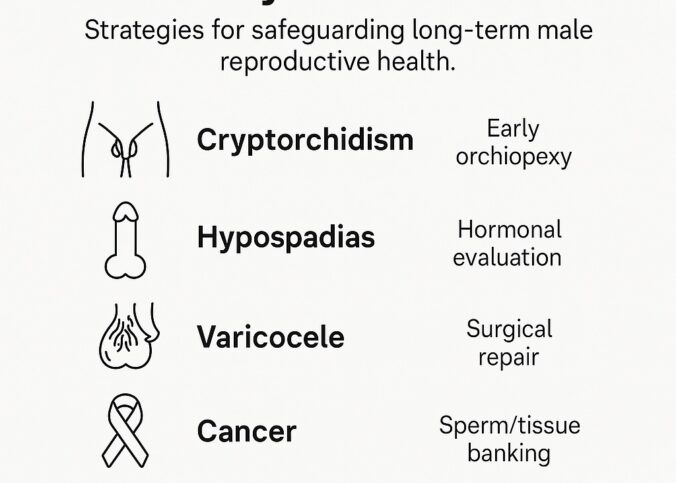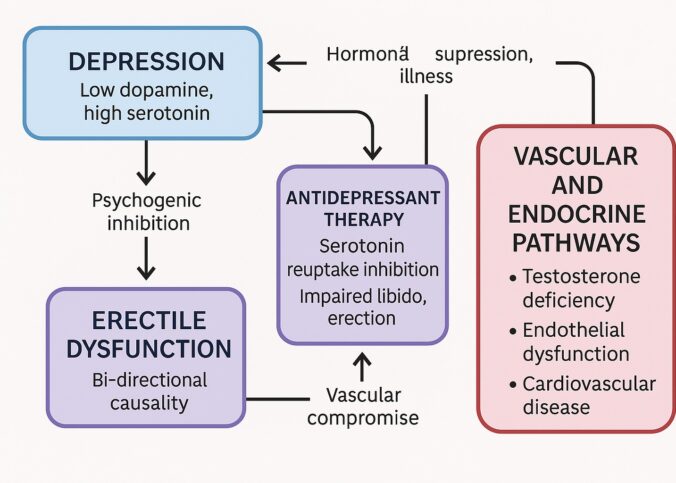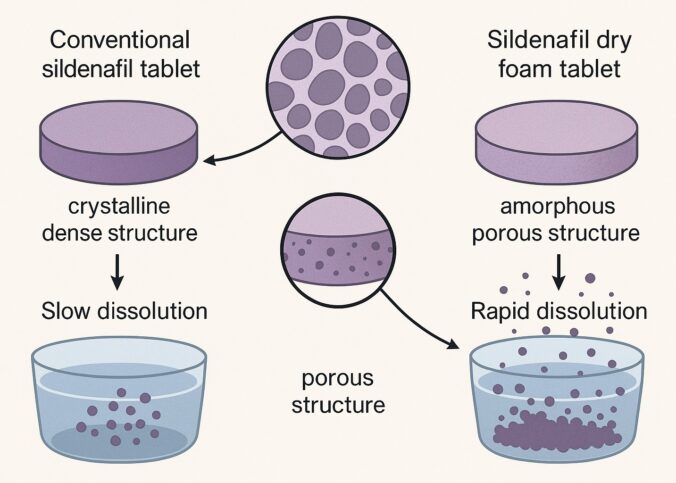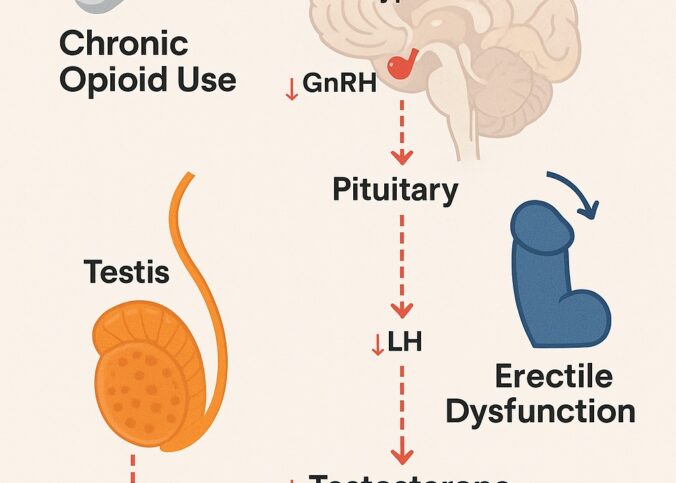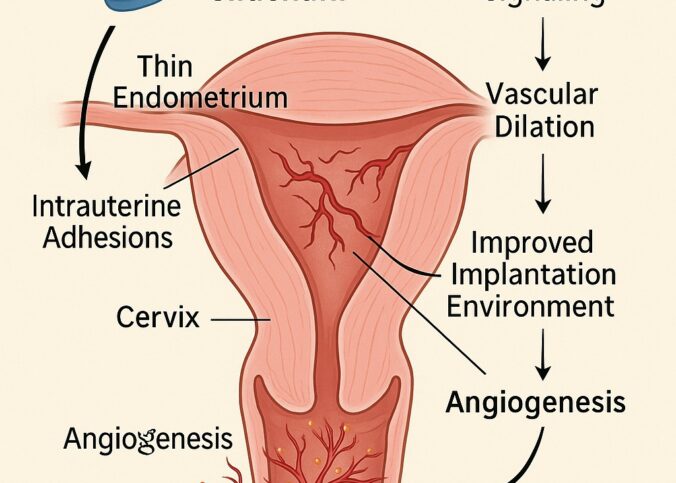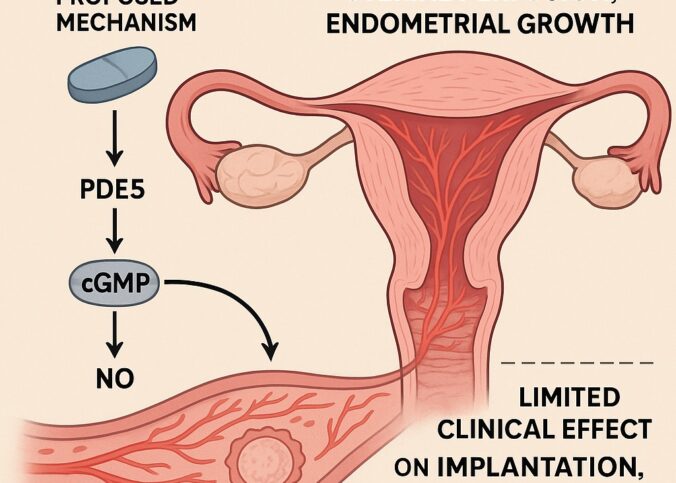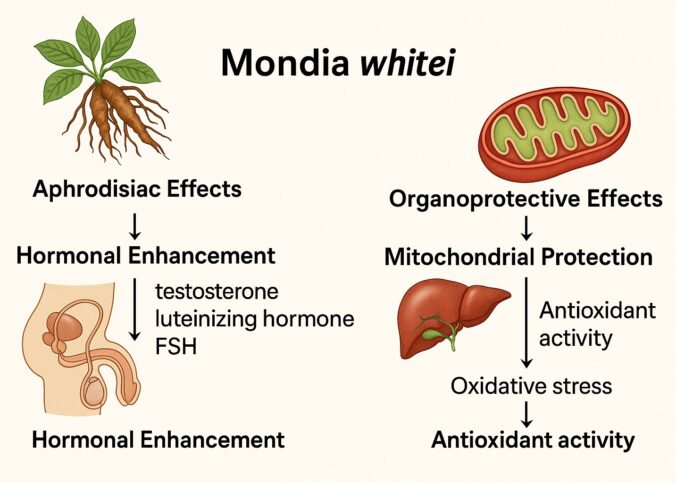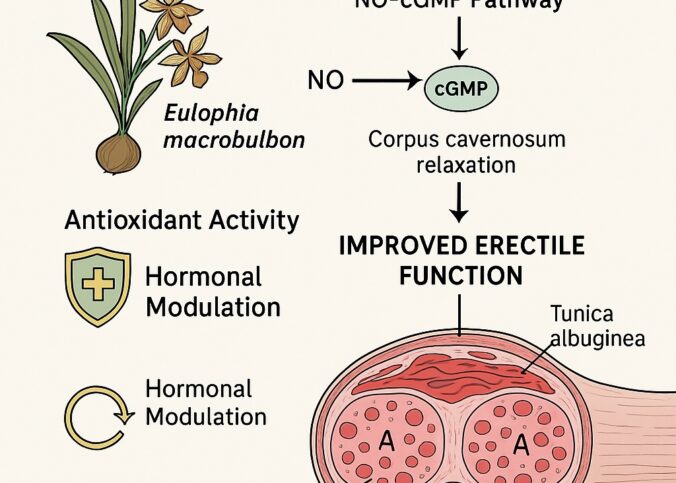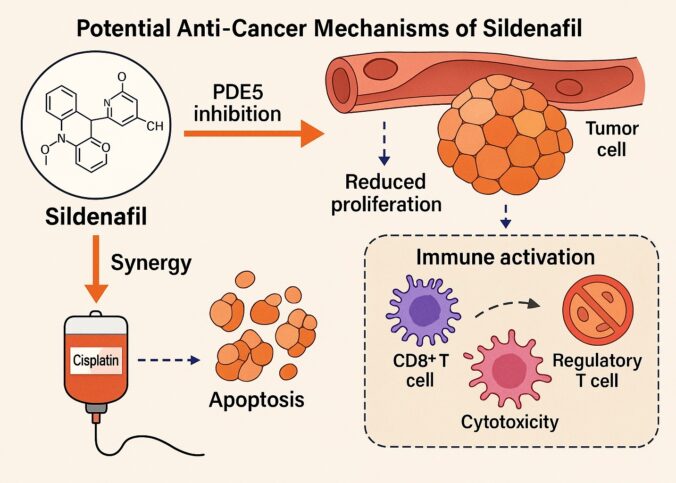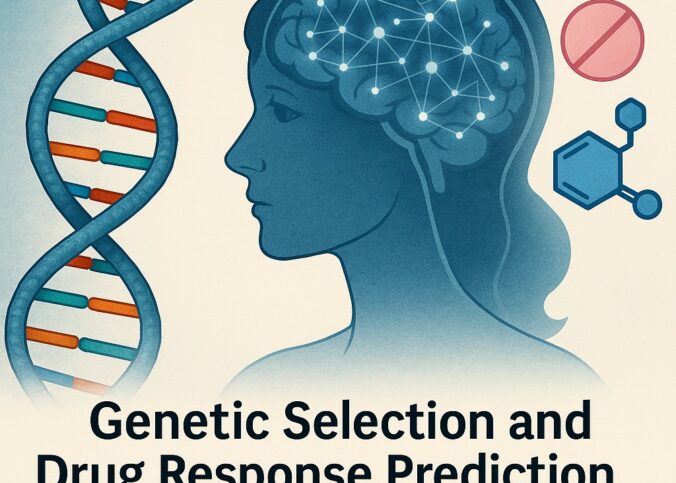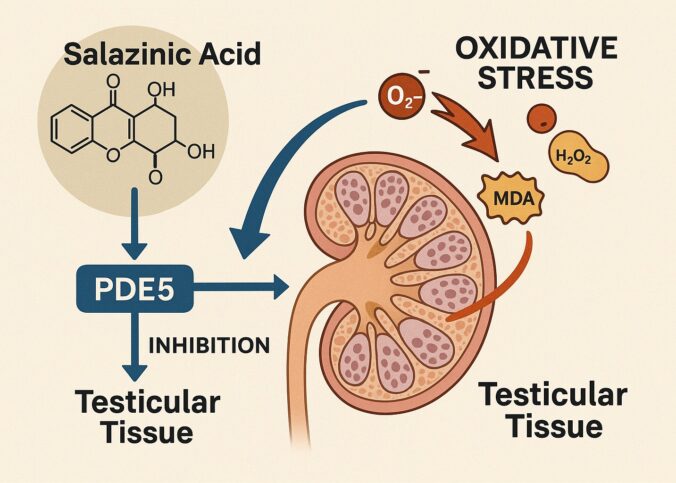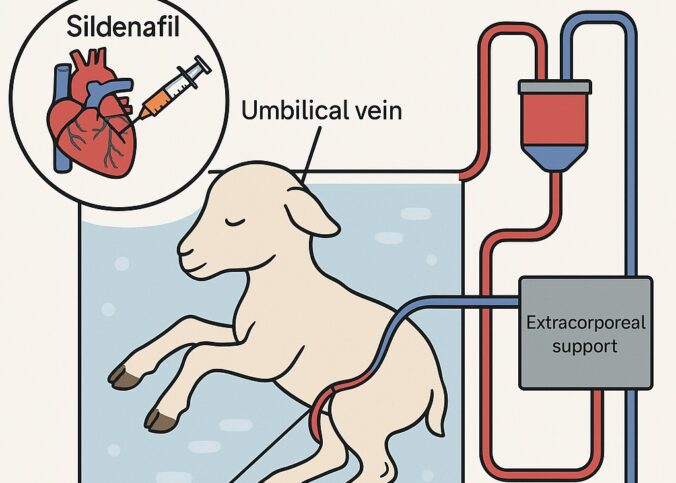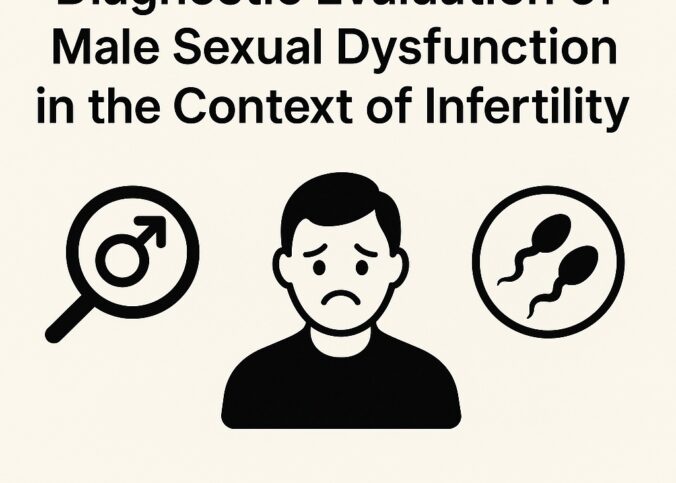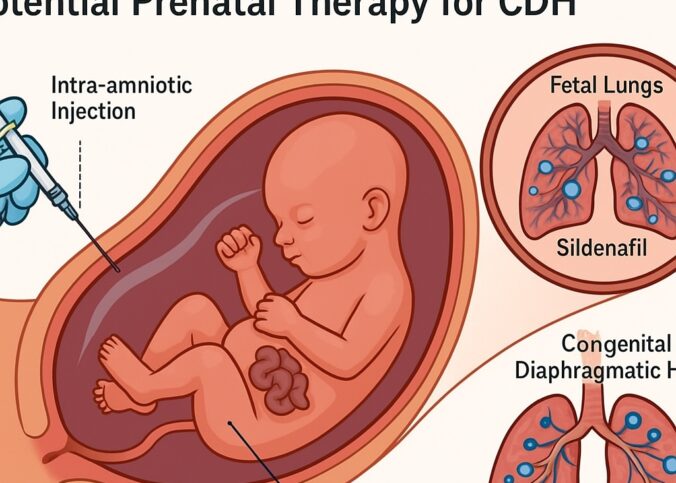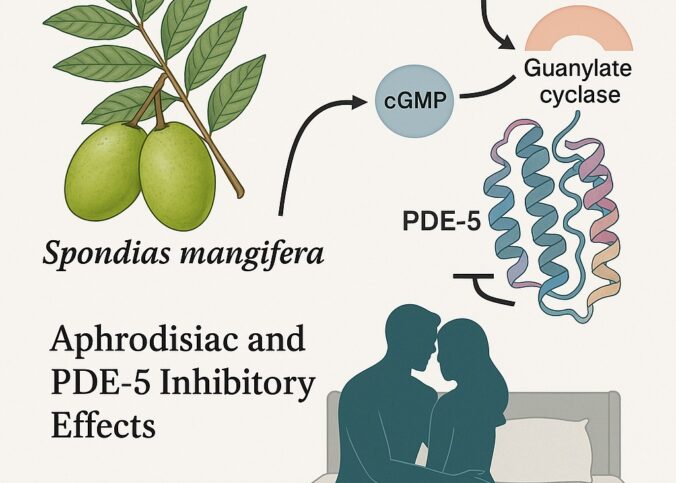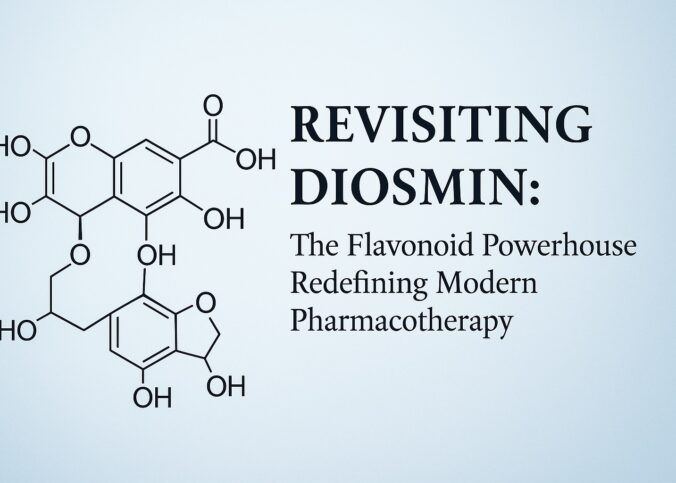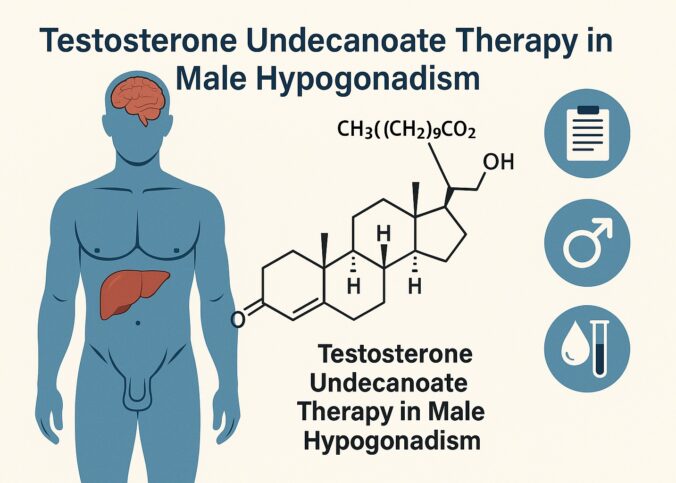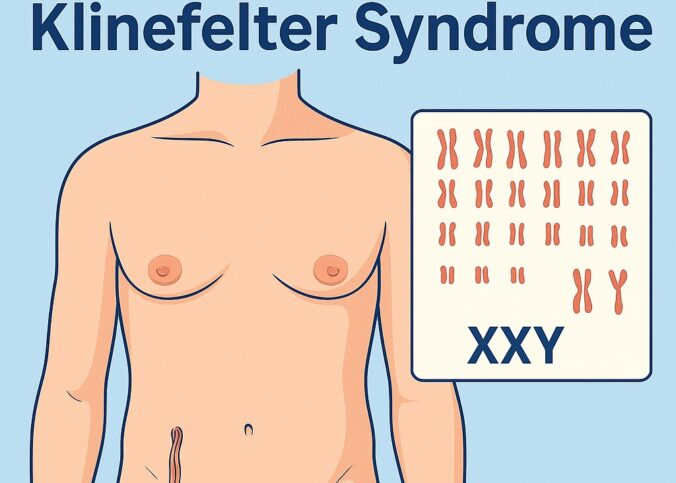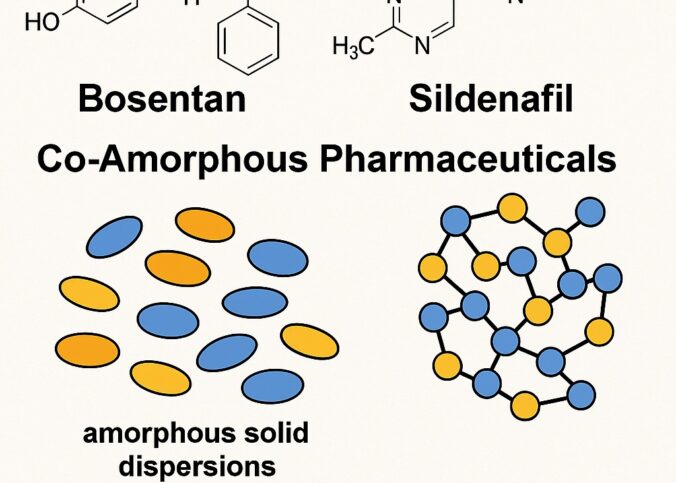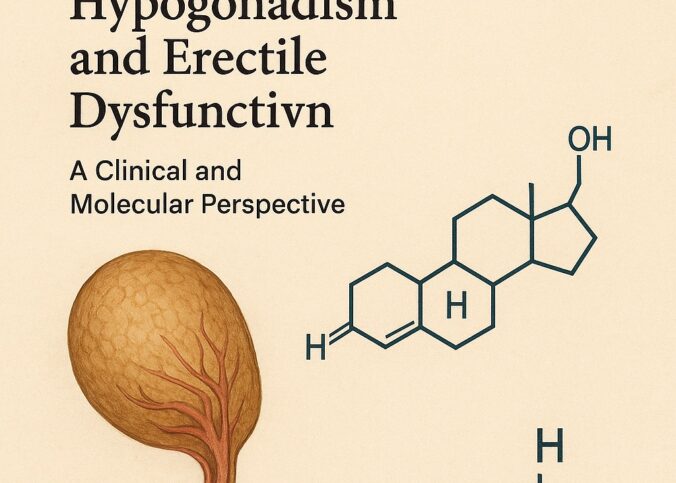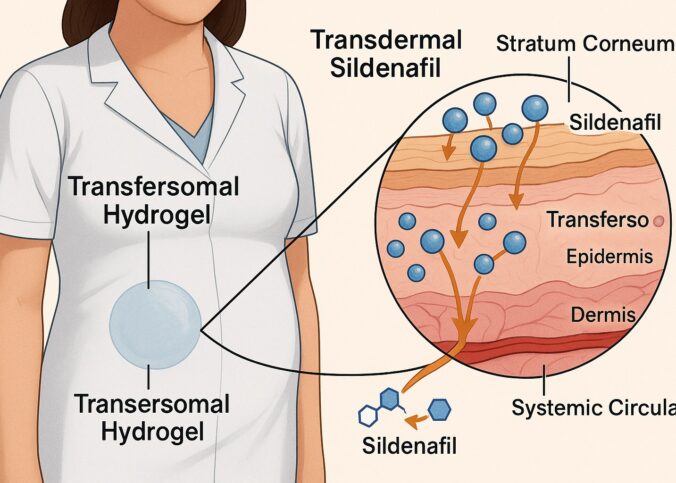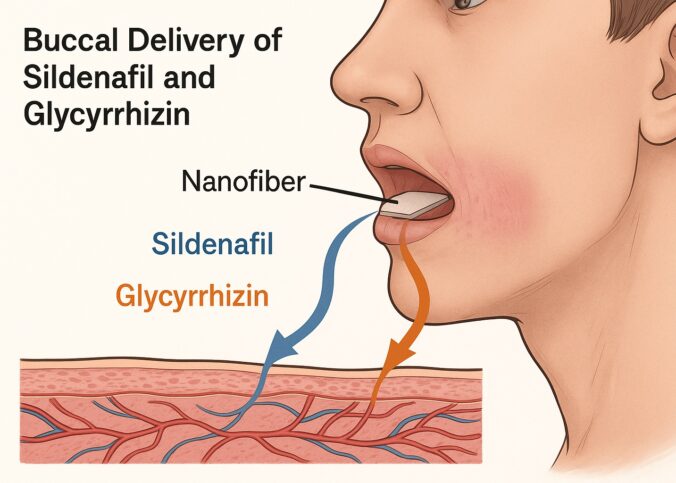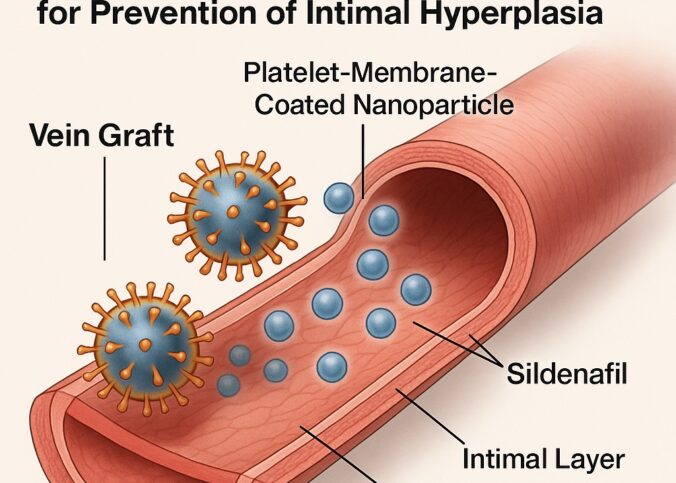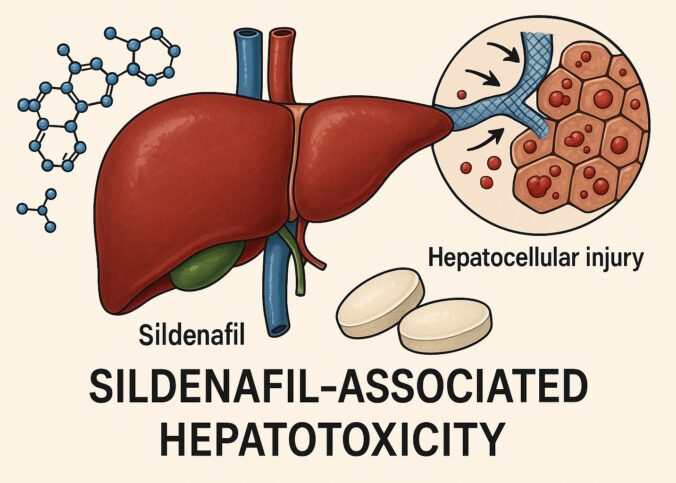Introduction The evolution of drug delivery has long sought the delicate balance between therapeutic efficacy and patient convenience. Topical and transdermal formulations stand at this intersection, offering the potential for localized, sustained, and noninvasive pharmacotherapy. Sildenafil citrate, widely recognized for…
Category: ED Pills
Introduction Premature ejaculation (PE) remains one of the most prevalent male sexual disorders, affecting up to 30% of sexually active men worldwide. Despite its frequency, it continues to challenge clinicians due to the interplay between psychological, neurobiological, and pharmacological determinants….
Introduction The study of natural aphrodisiacs has advanced from folklore to pharmacology, guided increasingly by molecular validation. Among the promising botanical candidates is Raphia vinifera (Arecaceae), a palm species traditionally used in West Africa for the management of male sexual…
Introduction In the relentless war against cancer, the battlefield is not limited to tumor cells alone — it extends into the intricate signaling networks that sustain them. Among these molecular accomplices, cyclooxygenase-2 (COX-2) stands out as both a mediator and…
Introduction Priapism — the persistent, often painful erection of the penis unrelated to sexual arousal — remains one of the more paradoxical and challenging urologic emergencies. While its mythological name derives from the Greek fertility god Priapus, the clinical reality…
Introduction For over two decades, sildenafil citrate has been the pharmacological cornerstone of erectile dysfunction (ED) therapy. Yet, despite its clinical success, its traditional oral tablet formulation has remained imperfect. Patients and clinicians alike have long wrestled with three fundamental…
Introduction In an age where modern pharmacology often looks toward synthetic innovation, it is somewhat ironic that some of the most potent modulators of sexual health are found not in laboratories but in nature’s pharmacopoeia. Among these, three names have…
Introduction The pharmaceutical industry has long prided itself on precision — in chemistry, formulation, and quality assurance. Yet, beneath the veneer of technological maturity lies an inconvenient truth: traditional tablet manufacturing remains largely 2D, constrained by compression, coating, and conventional…
Introduction Few obstetric complications have both fascinated and frustrated clinicians as much as preeclampsia — a hypertensive disorder of pregnancy characterized by systemic endothelial dysfunction, placental ischemia, and multiorgan involvement. Despite centuries of study, it remains one of the leading…
Introduction Atrial fibrillation (AF) remains the most common sustained cardiac arrhythmia encountered in clinical practice, characterized by disorganized atrial electrical activity, loss of coordinated contraction, and an irregularly irregular ventricular response. Its global burden is vast — affecting more than…
Introduction In surgery, the closure of wounds inside the body represents a masterpiece of biological and surgical precision. Yet, when that closure involves reconnecting two ends of the colon—a process known as colon anastomosis—the outcome can determine life or death….
Introduction Male infertility remains a significant global health concern, accounting for nearly half of all infertility cases in couples. The condition arises from diverse causes — including hormonal imbalances, oxidative stress, genetic mutations, infections, and environmental toxins. Yet, among these,…
Introduction: A Familiar Molecule, A New Form Since its introduction in 1998, sildenafil citrate has remained one of the most studied and prescribed medications for erectile dysfunction (ED) — a condition that affects hundreds of millions of men worldwide. Originally…
Introduction Erectile dysfunction (ED) remains one of the most pervasive and psychologically distressing complications of diabetes mellitus. While pharmacological treatments such as phosphodiesterase type 5 inhibitors (PDE5i) have revolutionized sexual medicine, their side effects, high costs, and limited efficacy in…
Introduction Few drugs have reshaped both medical science and cultural imagination as profoundly as sildenafil citrate, better known under its trade name Viagra. Initially developed as a cardiovascular drug in the 1980s, it became the first oral therapy for erectile…
Introduction Sexuality is an inseparable dimension of human well-being — a barometer not only of hormonal harmony but of emotional and neurological integrity. When epilepsy enters the scene, this delicate equilibrium is often disturbed. Sexual dysfunction in men with epilepsy…
Introduction Erectile dysfunction (ED) has become one of the most frequently discussed and investigated conditions in modern men’s health. The increasing longevity of populations, coupled with a more open cultural attitude toward sexual health, has brought ED from the shadows…
Introduction: A Meeting Between Metabolism and Mechanism At first glance, metformin and sildenafil belong to different universes of pharmacotherapy. One is the cornerstone of modern diabetes management, celebrated for its humble ability to curb hepatic glucose output and sensitize cells…
Introduction: The Hidden Cardiac Toll of Burn Injury Severe burn injuries are among the most devastating forms of trauma, both physically and physiologically. While public health narratives often focus on skin healing and infection prevention, an equally critical but less…
Introduction: From Folk Remedies to Modern Pharmacology Erectile dysfunction (ED) remains one of the most persistent and psychologically burdensome male health disorders, impacting nearly one-third of men worldwide by the year 2025. Although not life-threatening, it compromises self-esteem, intimacy, and…
Introduction: When Modern Medicine Meets Ancient Roots Sexual health, though often framed in physiological terms, is deeply woven into human emotion and identity. The ability to perform sexually is not merely mechanical—it represents confidence, connection, and vitality. Thus, when sexual…
Introduction: A Fast Reflex and a Slow Understanding In medicine, some of the simplest phenomena turn out to be the hardest to explain. Premature ejaculation (PE) — often treated as a punchline in popular culture — remains one of the…
Introduction: When Chemistry Enters the Bedroom Sex, once considered the most natural of human activities, is now often mediated by chemistry. Pills, patches, and potions have infiltrated the intimate domain, promising performance, endurance, and satisfaction — sometimes even love itself,…
Introduction: When Science Meets Convenience Since its serendipitous discovery in the 1990s, sildenafil has transformed the management of erectile dysfunction (ED), reshaping not only pharmacotherapy but also the social discourse around male sexual health. Once confined to whispered consultations and…
Introduction: A Drug of Paradoxical Promise Sildenafil citrate, more famously known as the little blue pill that revolutionized the treatment of erectile dysfunction, has had an unexpectedly adventurous career in medicine. Initially developed as a vasodilator for angina, it found…
Introduction: When a Paralyzing Toxin Turns Therapeutic The history of medicine is full of paradoxes, but few are as striking as the story of Clostridium botulinum—the bacterium that produces the world’s most potent toxin—and its transformation into one of the…
Introduction Infertility is not merely an adult problem—it often begins in childhood. While most discussions on male infertility revolve around aging, lifestyle, or environmental toxins, the foundation for reproductive capacity is laid long before adulthood. Many congenital or acquired pediatric…
Introduction Medicine often tries to separate the body from the mind, yet some disorders seem to defy that division. Erectile dysfunction (ED) and depression are two such conditions—each capable of amplifying the other in an almost perfect vicious cycle. The…
Introduction In modern pharmaceutics, the challenge is rarely about discovering new molecules—it is about making old molecules perform better. Sildenafil citrate, known globally as the active ingredient in Viagra, stands as a case in point. Despite its pharmacologic brilliance as…
Introduction In the evolving landscape of chronic pain management, opioid analgesics remain both indispensable and controversial. Their widespread use for non-cancer pain—particularly low back pain, the most common musculoskeletal complaint worldwide—reflects a therapeutic paradox. While opioids promise relief, they frequently…
Introduction Few challenges in reproductive medicine are as persistently frustrating as poor endometrial development following intrauterine adhesions (IUA). Despite successful surgical resection and uterine cavity restoration, many women continue to face a thin, poorly vascularized endometrium—an environment hostile to implantation…
Introduction For decades, reproductive medicine has pursued one elusive goal: transforming a suboptimal endometrium into a receptive one. While in vitro fertilization (IVF) has advanced dramatically, success rates remain stubbornly constrained by one variable—endometrial quality. A thin or poorly vascularized…
Introduction For centuries, the African continent has nurtured a pharmacopoeia of botanical treasures—plants revered not merely for their nutritional or aromatic value but for their capacity to invigorate the human body at its deepest levels. Among these is Mondia whitei,…
Introduction Erectile dysfunction (ED) remains one of the most prevalent and distressing conditions in aging men, affecting not only sexual health but also psychological well-being and overall quality of life. The global prevalence of ED increases sharply with age, with…
Introduction It is rare in modern pharmacology for a drug to reinvent itself so dramatically. Yet sildenafil, a molecule initially designed for angina and later repurposed for erectile dysfunction, continues to surprise. Beyond its well-known vasodilatory action through phosphodiesterase type…
Introduction The concept of “personalized medicine” has long promised to deliver the right drug to the right patient at the right time. Yet, in practice, most therapies are still prescribed through trial and error, often guided more by population averages…
Introduction Diabetes mellitus, once considered a disease of metabolism alone, has gradually revealed its pervasive grip on nearly every organ system. Among its less discussed but profoundly impactful complications lies male sexual dysfunction, a condition that affects up to 90%…
Introduction Few drugs have journeyed from the realm of cardiovascular medicine to neonatal and fetal therapy with such intrigue as sildenafil citrate. Originally heralded for its vasodilatory prowess in pulmonary hypertension and its more infamous association with erectile dysfunction, sildenafil…
Introduction: When Reproduction Meets Erection Male infertility is more than a problem of sperm count—it is often a mirror reflecting deeper issues of male sexual health. Among these, sexual dysfunction occupies a unique and delicate intersection between physiology and psychology….
Introduction The intrauterine environment represents one of the most intricate pharmacological frontiers in modern medicine. The capacity to administer therapeutics directly to the developing fetus—bypassing maternal metabolism and placental barriers—has long been considered a bold aspiration in fetal medicine. Recent…
Introduction Erectile dysfunction (ED) remains one of the most prevalent male health concerns worldwide, affecting an estimated 300 million men by 2025. It is no longer viewed merely as a sexual limitation but as a complex, multifactorial condition intertwined with…
Introduction In an age where medicine increasingly turns toward nature for biochemical inspiration, few compounds have drawn as much scientific fascination as diosmin — a naturally occurring flavonoid glycoside predominantly found in citrus fruits. Originally isolated from Scrophularia nodosa nearly…
Introduction: The Weight of Deficiency Testosterone deficiency, or male hypogonadism, represents one of the most underdiagnosed and undertreated endocrine conditions of modern times. Despite its ancient roots—described in literature long before hormones were ever quantified—hypogonadism has only recently emerged from…
Introduction: When Biology Defies Expectation Klinefelter syndrome (KS) is a genetic enigma that quietly challenges our assumptions about masculinity, hormones, and human behavior. Traditionally defined by the karyotype 47,XXY, KS is the most common sex chromosomal abnormality in males, affecting…
Introduction: Two Old Drugs, One Persistent Problem Pulmonary arterial hypertension (PAH) remains one of the most devastating chronic cardiovascular disorders, characterized by elevated pulmonary artery pressure, progressive vascular remodeling, and eventual right heart failure. Despite the availability of several pharmacological…
Introduction: When Physiology Meets Psychology Erectile dysfunction (ED) — the persistent inability to achieve or maintain an erection sufficient for satisfactory sexual performance — is far more than an inconvenience. It is a biomarker of systemic health, a signal of…
The treatment of erectile dysfunction (ED) has long relied on oral phosphodiesterase type 5 (PDE5) inhibitors—most notably, sildenafil citrate. Since its debut in the late 1990s, sildenafil has revolutionized sexual medicine, transforming an often stigmatized disorder into a treatable physiological…
The management of erectile dysfunction (ED) has evolved significantly since the late 1990s, when the introduction of sildenafil citrate redefined both pharmacology and male sexual health. Yet, despite its clinical success, oral sildenafil still faces the same pharmacokinetic barriers that…
Vein grafting is a cornerstone of modern vascular and cardiac surgery. Whether restoring coronary flow in bypass surgery or repairing peripheral circulation, the autologous vein graft remains a trusted surgical ally. Yet this ally has a critical flaw: its long-term…
Since its approval in 1998, sildenafil citrate (Viagra®) has revolutionized the treatment of erectile dysfunction (ED) and expanded its therapeutic reach into pulmonary arterial hypertension and other vasculopathic conditions. With more than two decades of global use, sildenafil is widely…
